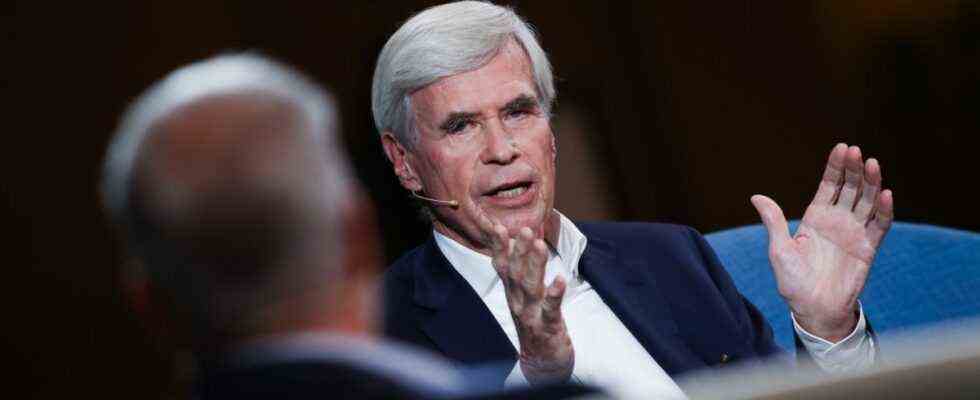Today the topic of sustainability is one of the megatrends in Germany and around the world. Pretty much all companies in this country claim to pay attention to the consequences for the environment in their activities. This is not always consistently credible for all of them. But there are also those who started to integrate the protection of people and nature into their work processes fairly early, at least much earlier than is generally known: the Otto Group, for example.
The international trading group based in Hamburg declared environmental protection an official corporate goal as early as 1986 and acted accordingly. Michael Otto, 78, who led the company from 1981 to 2007 and is still chairman of the supervisory board, said at the SZ economic summit that he was convinced that he was doing the right thing very early on. The wake-up call was basically the Club of Rome’s 1972 report on the limits to growth.
Michael Otto gives a few examples of the processes that the family company was already aligning step by step towards ecology. It withdrew furs and harmful paints from its range. In the 1990s, it began to promote environmentally friendly textiles such as organic cotton. The group also gradually reduced its CO2 emissions during transport and largely switched freight from air to ship traffic. The corporate goal also became to promote humane production methods at the suppliers.
“Everyone has to start with themselves, every citizen, but also every entrepreneur,” says Michael Otto. Back then, all of our trading colleagues did not always look sympathetically at the company’s ecological orientation. “I already noticed that they viewed me a bit as exotic.”
In the meantime, however, there has also been a change in awareness among companies. Of course there is also greenwashing. But: “I have the impression that everyone has now understood that things cannot go on like this. That there is an urgent need for action,” says Michael Otto. It is no longer a matter of whether we do it, but how quickly we do it. “There is no turning back.” In addition, many companies have understood: “If we are now at the forefront when it comes to climate neutrality, then we will also have a major competitive advantage.”
As chairman of the presidium of the Stiftung Zwei Grad, to which all important industries in Germany belong, he sent a letter to the top representatives of the SPD, Greens and FDP after the federal election. In it, the foundation “showed very clearly” how politicians now have to set the framework so that companies can achieve the goals of climate neutrality. He received very positive feedback from Olaf Scholz, Annalena Baerbock and Christian Lindner. “And now of course it means that the ideas will also be included in the coalition program. We’ll have to wait and see.” You can see that Otto’s commitment, which began decades ago, is far from over.

